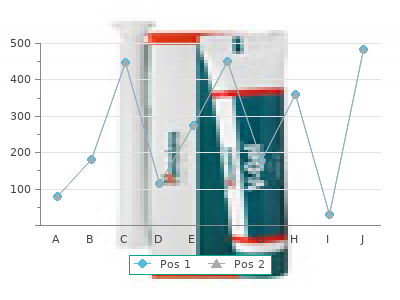Aygestin
By Q. Abbas. Drake University.
Lifestyle Suggestions • Brush your teeth after meals and at bedtime and floss daily buy 5 mg aygestin fast delivery. Replace your brush every three to four months or even more often if the bristles are worn down cheap aygestin 5mg on line. Electric toothbrushes are very effective and may be helpful especially for those with arthritis or problems with dexterity. Use gentle pressure; the tips of the brush do the cleaning, so it isn’t necessary to use force. To properly floss, use about 18 inches of floss, hold the floss taut and bent around each tooth, and scrape up and down each side of each tooth. Be gentle as you lift the floss toward the gum line as strong pressure may cause the gums to bleed. Some research has found that it can improve symp- toms of periodontal disease (bleeding gums and loose teeth). Studies have found that those who are deficient in vitamin C are at increased risk of gum disease and supplementing can help to reduce symptoms. Vitamin E: Antioxidant properties help protect against free radicals produced by white blood cells attracted to diseased gums. When we see more hairs than usual in the shower or the hairbrush, we suddenly wonder whether we might be losing our hair. It’s comforting to know that the human body sheds ap- proximately 100 of its 100,000–150,000 strands of hair every day and new ones grow to take their place. What is commonly known as male- pattern baldness is an inherited condition called androgenetic alopecia and it may begin as early as age 20. Male hair loss is distinguished by a receding hairline or widow’s peak and thinning on the crown. For 40–50 per- cent of women, hair may begin to thin after age 50 (typically after menopause). Women tend to see their hair thin throughout the head, but most visibly on the crown. Significant hair loss for women before age 50 is rare and usually triggered by hormonal fluctuations, stress, or a secondary health concern. Other kinds of hair loss include: H Alopecia areata: This form of hair loss is characterized by patchy baldness or bald spots. It affects both men and women equally, both adults and children, but it is rare, affecting less than 2 percent of the population. Hair loss due to alopecia areata is usually triggered by an immune system disorder. Anagen effluvium: This condition occurs when hair in the growth phase falls out prematurely. Prescription medications used for the treatment of cancer are the most common cause of this condition. Chemotherapy patients may lose up to 90 percent of their hair as a result of anagen effluvium. Telogen effluvium: A natural part of the hair growth cycle includes a resting phase called telogen, which involves 10 percent of hair at any given time. Telogen effluvium occurs when up to 30 percent of hairs on the head are in the resting phase at any given time. This condition may be caused by physical or emotional stress, and hair growth will return to normal as stress is eased. The health of your hair is a reflection of the overall state of your health, so it is im- portant to address hair loss from a multipronged approach that includes both the use of standard medical treatments to slow hair loss, and nutritional and lifestyle changes to address and improve health. Hair loss due to aging and genetics must be treated as early as possible to stabi- lize hair loss and stimulate regrowth. Minoxidil is a vasodilator (a drug that causes the blood vessels in the body to become wider) 254 and was originally introduced as a blood pressure–lowering drug. When it was found to have an added benefit on hair loss and regrowth, it was reformulated as a topical 2 percent solution and is now sold over the counter. It has been shown to benefit approximately 40 percent of people who use it for hair loss as early as two months after the initial application. Studies show hair weight and hair counts increase with the 2 percent solution, and more so with the 5 percent solution where hair weight increased by 45 percent. Another recommended treatment for hair loss is finasteride (Propecia), an oral prescription medication taken once daily for life. It has been shown to stop hair loss in 83 percent of cases and to stimulate regrowth in 66 percent of cases. While there are no foods that directly stimulate increased hair growth, choose foods that supply the body with a rich supply of vitamins, minerals, antioxidants, fibre, and protein. Foods to include: • Ensure adequate protein intake as protein is necessary for hair growth.


Commenting on the discrepancy generic aygestin 5mg without a prescription, Lake and Spiegel state that there is evidence that people with affective disorders or schizophrenia may have higher requirements order aygestin 5mg line. They recommend 1 mg (1000 mcg) per day and recommend that folate be coupled with 2. Further investigation of possible predictors of response would help identify the people most likely to benefit from folate supplementation. Gender differences and the effect of folate supplementation in the absence of baseline folate deficiency require concerted research. Long-term outcomes -- benefits and liabilities from continuing treatment with folate, measuring precise folate levels through the treatment cycle and comparative assessment with other drugs -- require further investigation, as do the systematic tracking, reporting and quantification of adverse effects. A Meta-analysis and Exploration of Heterogeneity,”Journal of Epidemiological Community Health 61:631-637 (2007). In its neuroprotective role, the blood–brain barrier functions to hinder the delivery of many potentially important diagnostic and therapeutic agents to the brain. However, two recent major studies and a Cochrane review cast doubt on the validity of the prior, smaller and shorter studies, and determined that in the aggregate the data do not support the use of ginkgo in the prevention of Alzheimer’s disease. The recent evidence is mostly negative, though the studies are still inconsistent. Although ginkgo has a mild effect in protecting against mild cognitive impairment/dementia, it probably does not prevent it. But all sources except one remain optimistic for some ongoing neuroprotective role for Ginkgo. These are all unproven uses, but given ginkgo’s relatively low cost and benign risk profile, consumers may well wish to try ginkgo for these conditions. Caution is advisable if ginkgo is used with psychotropic drugs, in the absence of studies validating lack of adverse drug interactions. Adjunctive treatment with antipsychotics requires careful coordination with the prescribing physician. The prescribing physician should be consulted before using ginkgo in connection with these drugs. For instance, in 2008, tests on seven of the most popular ginkgo products sold in the United States found that five were contaminated or low in key compounds. The split of the sources confirms that this is a controversial supplement, and the recent evidence, from large-scale, long-term studies, is all negative. But the risk is minimal, and the sources continue to argue that ginkgo has neuroprotective efficacy, even if it doesn’t prevent Alzheimer’s dementia. Common Names include ginkgo, Ginkgo biloba, fossil tree, maidenhair tree, Japanese silver apricot, baiguo, bai guo ye, kew tree, yinhsing (yin-hsing). Extracts are taken from the ginkgo leaf and are used to make tablets, capsules, or teas. The recent evidence is mostly negative, including the 2012 publication of the GuidAge Study. But all sources except Berkeley Wellness remain optimistic for some ongoing neuroprotective role for Ginkgo: 3. However, Fugh-Berman now states that ginkgo appears to be ineffective in preventing or delaying cognitive impairment. Fugh-Berman is persuaded that though ginkgo has a mild effect in treating dementia (it’s about as effective as conventional drugs used to treat dementia), it does not prevent it. They noted that most reports of improvement had involved elderly subjects with some cognitive impairment and called for more extensive trials with healthy subjects. It is recommended for managing symptoms associated with a range of neurologic and vascular disorders including dementia …. It is approved for treatment of Alzheimer’s disease in Belgium, the Czech Republic and Germany, and suggested for memory complaints in France and Spain. Evidence from biomedical research supports its effects on memory impairment, lack of concentration, cerebral-vascular insufficiency, as well as age-related and dementia- 5 related cognitive weaknesses. It has gone so far as to drop ginkgo from its list of dietary supplements (in the 2011 edition ff. Further analysis of the data also found ginkgo to be ineffective in slowing cognitive 18 decline. In this landmark clinical trial, researchers recruited more than 3,000 volunteers age 75 and over who took 240 mg of ginkgo or placebo daily, in two doses. But in that case the evidence pointed in only one direction: it did not prevent Alzheimer’s. A subgroup analysis including only patients diagnosed with Alzheimer’s disease (925 patients from nine trials) also showed no consistent pattern of any benefit associated with ginkgo. Incidence of other haemorrhagic or cardiovascular events also did 24 not differ between groups. Analysis sponsored by a supplement manufacturer showed that ginkgo might yet be shown to protect the subgroup of long-term users: 15 out of 947 patients (1. But the efficacy of ginkgo in combating cognitive impairment is definitely controverted.
